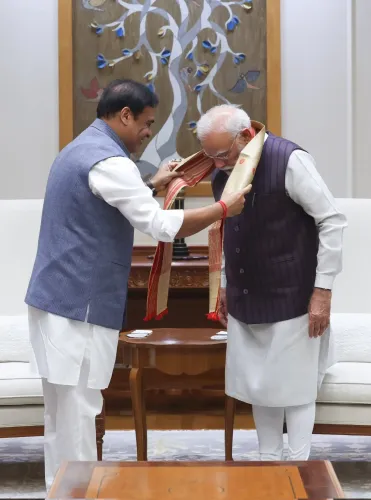Jamiat Ulama-i-Hind Challenges UCC in Nainital High Court

Synopsis
Key Takeaways
- Jamiat Ulama-i-Hind files petition against UCC.
- Case led by Maulana Arshad Madani.
- Claims UCC violates religious freedoms.
- UCC is a directive principle, not binding.
- Concerns over secularism and unity of India.
New Delhi, Feb 12 (NationPress) Jamiat Ulama-i-Hind has lodged a petition with the High Court in Nainital contesting the enforcement of the Uniform Civil Code (UCC) in Uttarakhand.
The UCC was enacted in Uttarakhand in January. In reaction, Jamiat Ulama-i-Hind, led by its president, Maulana Arshad Madani, filed a petition and brought the matter before the Chief Justice of Uttarakhand. The case is anticipated to be reviewed later this week.
A senior Supreme Court advocate is set to represent Jamiat Ulama-i-Hind.
Maulana Madani expressed that they approached the court with the aim of obtaining justice and safeguarding the Constitution, democracy, and the rule of law, asserting that courts remain their last recourse.
"We will not accept any law that contradicts Sharia. Muslims can find compromise in various areas, but never regarding their Sharia and faith. This matter transcends mere Muslim existence; it involves their Constitutional rights. The government is attempting to strip Muslims of rights granted to them through the UCC," he stated.
He argued that the UCC's execution contradicts fundamental rights embedded in the Constitution. "This issue is about more than just Muslim personal law; it is about maintaining the secular essence of the nation. India is a secular country, which implies that the government should not endorse any religion, allowing individuals the freedom to practice their beliefs," he noted.
Madani further argued that the UCC threatens the unity and integrity of the nation. He highlighted that while Article 44 is cited to justify the UCC, it is merely a directive principle and not a mandatory provision. In contrast, Articles 25, 26, and 29, which guarantee religious freedom, are being disregarded. The Shariat Application Act of 1937 also safeguards Muslim personal law.
"The government promotes the notion that one nation should have one law, yet there are already discrepancies in the IPC, CrPC, and even cow slaughter laws across states. The belief that two laws cannot coexist within one system is erroneous," he contended.









